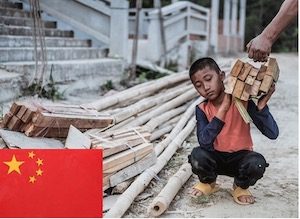By Adrienne Braumiller, Founding Partner Braumiller Law Group
Companies can expect to see ramped up enforcement on forced labor and increased scrutiny in their supply chains, among other trade-related initiatives of the new Biden Administration.
President Biden’s choice for Secretary of Commerce, Gina Raimondo, has made it clear in recent days that one of her goals in the position would mean a continued tough stance on exports and imports to and from China.
When testifying before the Senate Commerce Committee, Raimondo alluded to several Chinese policies, including human rights abuses in the Xinjiang province that she disagreed with, and how she intended to use the tools of her position to combat it, from the Entity List to countervailing duties.
Just about two weeks prior to Raimondo’s testimony before the Senate, U.S. Customs and Border Protection (CBP), on January 13, issued a Withhold Release Order (WRO) on cotton, tomatoes, and downstream products both from China’s Xinjiang region.
Federal statute 19 U.S.C. 1307 prohibits the importation of merchandise produced, wholly or in part, by convict labor, forced labor, and/or indentured labor, including forced or indentured child labor. The recent WRO means that as of January 13, at all U.S. ports, CBP will detain cotton products and tomato products produced in the Xinjiang region of China, suspected to be in violation of the forced labor statute. CBP said the decision comes after receiving information that reasonably indicates “the use of detainee or prison labor and situations of forced labor,” as according to the International Labor Organization’s brochure on Indicators of Forced Labor. Some of the practices cited include debt bondage, restriction of movement, isolation, intimidation, and threats, withholding of wages, and abusive living and working conditions.
Importers of detained shipments have the opportunity to either export their shipments or demonstrate that the merchandise was not produced with forced labor. CBP has said that enforcement of the WRO will focus on the highest risk imports. What this may mean is that CBP will first look to companies who have business ties to the Xinjiang region and where there is also high volume coming out of the region.
Although CBP enforcement may initially focus on more direct links to Xinjiang, to avoid detained shipments under the WRO, importers should take this opportunity to re-assess every segment of their supply chains and look into supplier business ties. Although it can be challenging to think of every type of product implicated in the many offshoot products of cotton and tomatoes, and each different part of your supply chain, now is the time to ask questions and determine if your goods are the direct or indirect products of forced labor. Examples of by-products of cotton or tomatoes can include apparel, textiles, tomato seeds, canned tomatoes, tomato sauce, etc.
Prior to this latest WRO, CBP had only issued WROs on cotton and cotton products from specifically named Xianjiang suppliers, Xinjiang Junggar Cotton and Linen Co., Ltd. and Xinjiang Production and Construction Corporation (XPCC) and its subordinate and affiliated entities. Now, the 2021 WRO goes further to subject the whole region.
With a wider scope comes even greater responsibility and caution for importers to mitigate potential supply chain risks, even outside the cotton and tomato sectors, because with the commitment of Biden’s choice for Secretary of Commerce indicating forced labor as a focal point, the enforcement against these practices is likely to only increase from here.
For assistance in evaluating your supply chain, or just figuring out where to begin, contact us for your compliance needs at Adrienne@Braumillerlaw.com.



























